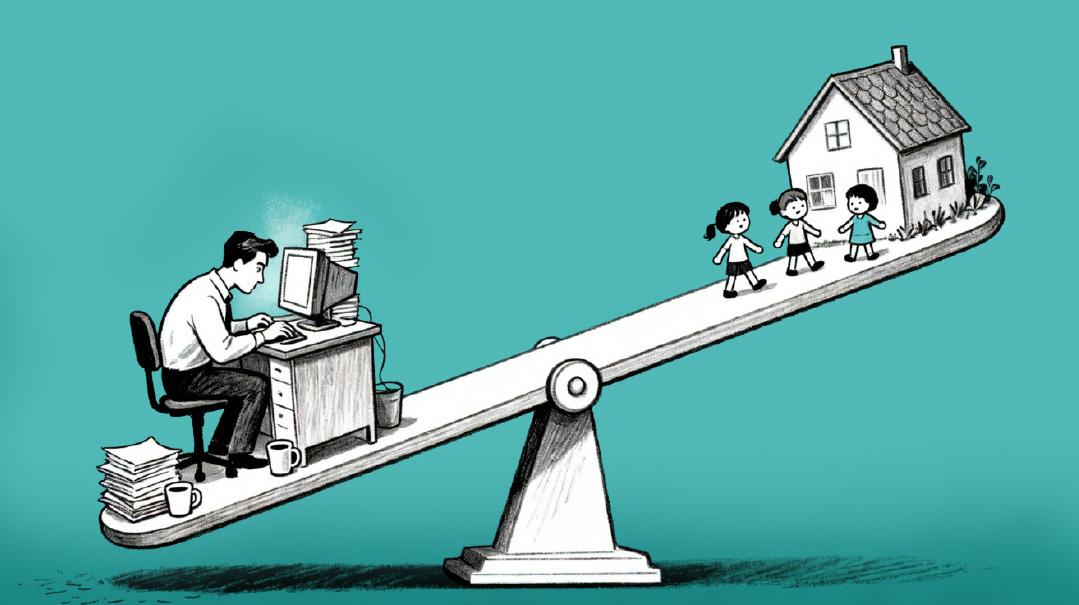The Pack Mentality
| February 13, 2024This is a cry from the heart, on behalf of so many aveilim who have shared similar experiences

Aveilus brings out the best of Klal Yisrael. After my recent loss of a parent, I was inundated with incredible kindness — after the petirah, during the shivah, and throughout the months afterward, from so many sides. The chevra kaddisha, Misaskim, shivah visitors, family and friends and those who learned Mishnayos — mi k’amcha Yisrael.
But I am sad to say that aveilus also draws out a certain inadvertent achzarius. Even though those involved are outstanding, well-meaning people, they occasionally express a type of zeal that comes across very poorly. They rationalize their behavior as being worried about “tircha d’tzibbur.” Let me explain.
It all began in shul, the day after I finished shivah, when I arranged to daven from the amud. This is a time when any avel feels vulnerable and somewhat anxious. I had been warned a bit about what to expect, and I am generally a confident person. However, I was completely unprepared for the ensuing experience. What transpired was far worse than what I could have anticipated.
The gabbai approached me to say that members of the kehillah were makpid on exact times for every stage of the tefillos. He handed me a card with a minute-by-minute schedule showing the exact time I was expected to finish each part of the davening. At the time, I actually welcomed this, because it gave me clarity.
On day one, things went reasonably well — although one member of the kehillah suggested that I had delayed two minutes in reaching Yishtabach. I have to say, I was quite surprised at this otherwise amiable person coming up to me like that, a day after the end of shivah. But day two went smoothly, as did day three.
On the fourth day, three people approached me after davening. Two said I had davened too slowly; the other said I had gone too quickly.
“They’re makpid on the exact times in this minyan — nothing personal,” he tried to point out politely.
I found this disturbing, as I had kept pretty closely to the time directives. But much more was to come.
The second and third weeks, the problem continued on a regular basis. This, despite the fact that I kept nearly precisely to the printed schedule. Two people would say “lovely davening,” two would say too slow, two would say too quick.
On one occasion, I think I must have pronounced a word too quickly. Two people came up to me and told me so. They questioned if they had been yotzei.
The following week I was told that I had recited the Kaddish too slowly. And this was when I reached my limit.
Here I would like to share a maiseh my friend witnessed when davening in the haneitz minyan of Rav Yosef Shalom Elyashiv ztz”l during Aseres Yemei Teshuvah. The shaliach tzibbur forgot to amend Kaddish with “l’eila ul’eila,” and several people called him out on the mistake. Rav Elyashiv stopped them by noting that embarrassing a friend is an issur from the Torah; missing the “ul’eila” was certainly not.
This kind of “pack” response is not just a problem for aveilim. Recently, when a bar mitzvah boy was leining and made a mistake, several people corrected him. He was very embarrassed, and his confidence was undermined, leading to more mistakes. It would be a wonderful takanah for only the gabbai to inform the bar mitzvah boy of a mistake; he could then correct himself, but in a dignified manner, and his self-respect could be maintained.
The final incident, the straw that broke the camel’s back: One morning I had adhered to the detailed schedule almost precisely, but the kehillah had davened more slowly than usual. I had not noticed this. Afterwards, the gabbai took pains to advise me that because of this, many in the kehillah had not been yotzei with Birchos Krias Shema.
This is a cry from the heart, on behalf of so many aveilim who have shared similar experiences. Please treat mourners with the same care and sensitivity you do when you visit them during shivah. Please understand their vulnerability, try to show chesed.
I asked daas Torah whether I should write this letter. The Rav confided to me that he had seen the same problem experienced by several aveilim. So now here is a suggestion to improve the situation,
- Treat aveilim with respect, empathy, and kindness, so that the multitude of chasadim they experience in the home during shivah resonates also within the walls of the beis medrash.
- In every shul, only the gabbai should be empowered to offer corrections or advice— not the “pack.” This applies particularly when a bar mitzvah boy is leining, but it should also apply when the regular Shabbos baal korei makes a mistake. In addition, when an avel is davening from the amud, only the gabbai should approach— and with great sensitivity.
- Loaded language, such as “we’re not yotzei,” should be absolutely avoided.
- Remember the wise words of Rav Elyashiv ztz”l, not to embarrass a friend, an issur from the Torah.
- A kehillah should be a forum for chesed— showing empathy and care to the avel is indeed a chesed shel emes.
(Originally featured in Mishpacha, Issue 999)
Oops! We could not locate your form.







